Search
Search Results
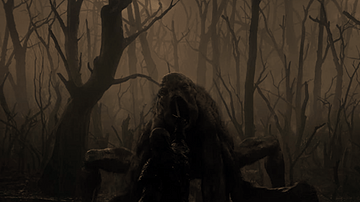
Image
Kikimora in Popular Culture
Henry Cavill in The Witcher (2019) by Netflix.
The image portrays a modern reimagination of Slavic Kikimora.
© Netflix
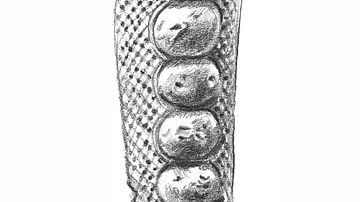
Image
Carved Globule Bones (Castelluccio Culture, Sicily)
Animal bone segments (early bronze age, c. 2169 - c. 1500 BCE), between 13-15 centimeters in length, sometimes decorated with incisions on which, successively, have been carried out globules in relief. Their uses are not yet known, although...
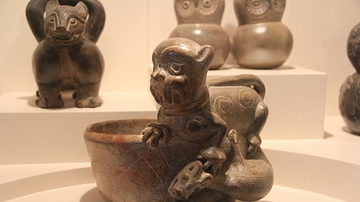
Image
Cupisnique Culture Sacred Animals
This piece shows a feline, owl, serpents, and condor. The owl and condor represented the sky while the feline represented the earth and dominance. The serpent represented the subterranean world. Housed in the Museo Larco, Lima, Peru.
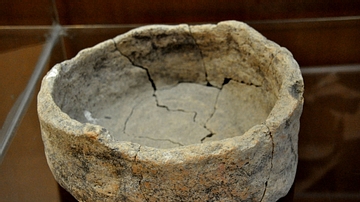
Image
A Dish from the Jarmo Culture
This rounded coarse-ware dish was found in Tell Tapa Raza, Sharazor Plain, Modern Sulaimaniya Governorate, Iraq. It dates back to the Jarmo period, 7000 BCE. (The Sulaimaniya Museum, Iraq).
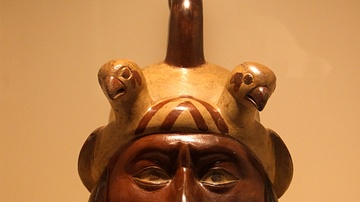
Image
Portrait Vessel, Moche Culture
This portrait vessel was made during the Moche civilization's Apogee Epoch (c. 1 CE - 800 CE). House in Museo Larco, Lima, Peru.
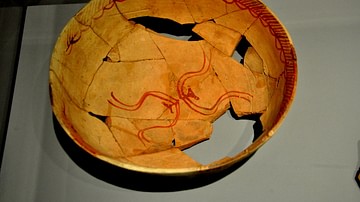
Image
Painted Bowl from Halaf Culture
This painted bowl dates back to the Halaf period, Mesopotamia, sixth century BCE. (The Sulaimaniya Museum, Iraq).
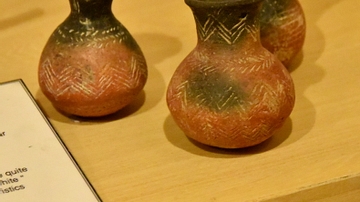
Image
Philia Culture Pottery from Cyprus
These pottery vessels show prominent Anatolian characteristics. Early Bronze Age in Cyprus, 2300-1900 BCE. (Museum of Archaeology, Istanbul, Turkey).
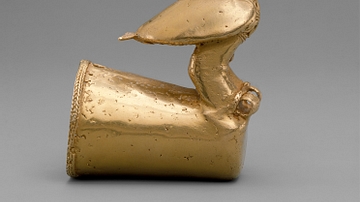
Image
Gold Staff Finial, Zenu Culture
A gold staff finial made by the Zenúes, a people who belonged to the Zenú tribe of ancient Colombia. It features an owl on the edge with a majestic crest, polished golden wings and false filigree openwork on its chest. Distinctive features...
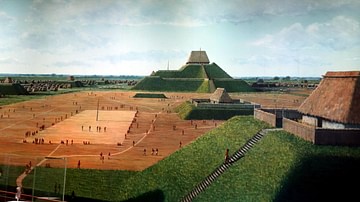
Definition
Pre-Colonial North America
Pre-Colonial North America (also known as Pre-Columbian, Prehistoric, and Precontact) is the period between the migration of the Paleo-Indians to the region between 40,000-14,000 years ago and contact between indigenous tribes and European...
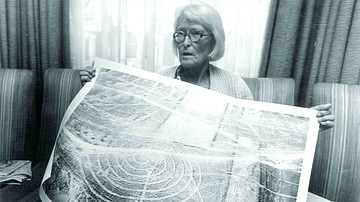
Image
Maria Reiche
Maria Reiche with a large aerial photo of Nazca Lines. She was a German-born Peruvian mathematician and archaeologist best known for her research into the Nazca Lines. Date of photograph is unknown. Image credit: The Maria Reiche Foundation...